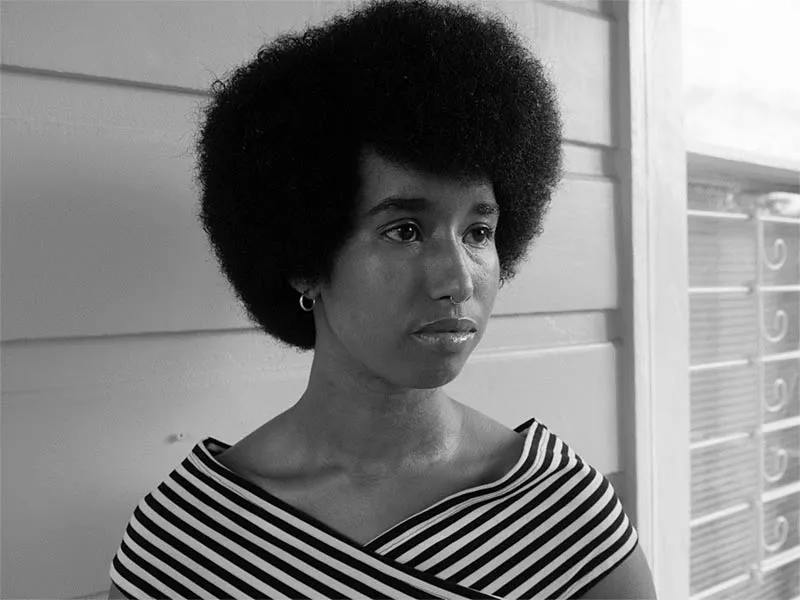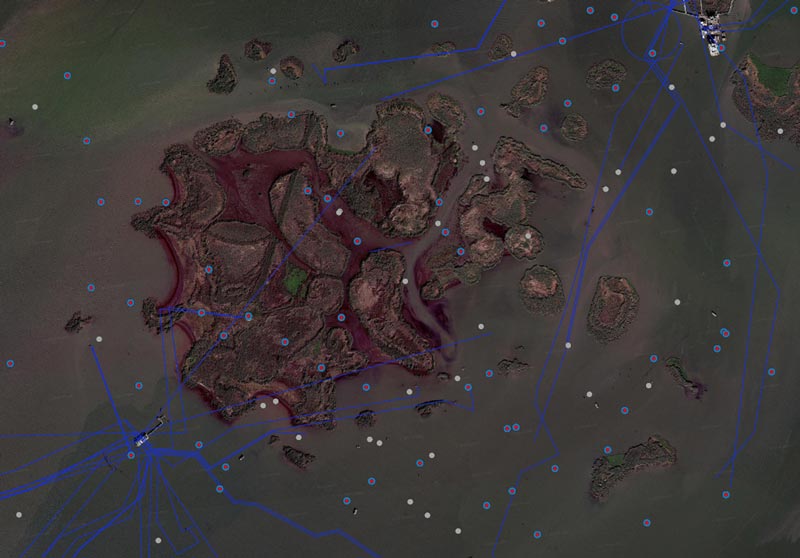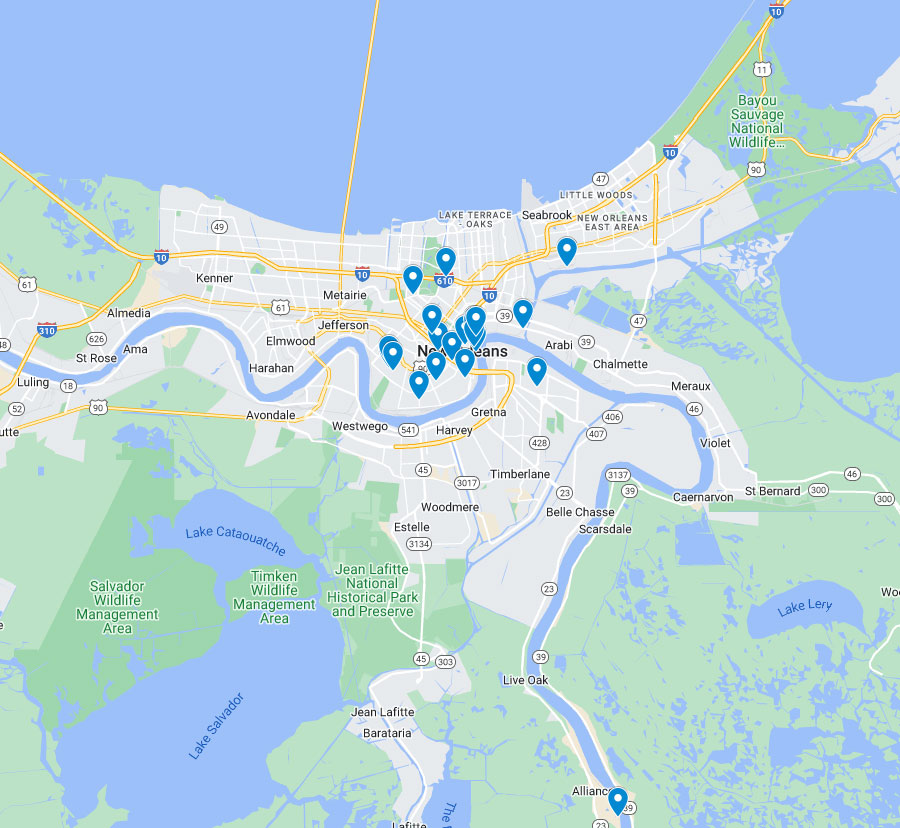
Biography
Imani Jacqueline Brown is an artist, activist, and researcher from New Orleans. Her work investigates continuums of extractive environmental and economic systems, from settler-colonial genocide and slavery to contemporary gentrification, fossil fuel production, and police and corporate impunity. These investigations expose the layers of violence and resistance that comprise the foundations of US society and prefigure a future of ecological reparations. Imani is a fellow with Open Society Foundations, as well as an architectural researcher with Forensic Architecture and a visiting researcher at the Centre for Research Architecture at Goldsmiths, University of London.
Research
Since fossil fuel exploration in Louisiana’s wetlands began in the 1930s, the state has lost 1,900 square miles of wetlands, and with them a critical buffer from destructive hurricanes. Over 60% of this “land loss” has been linked by USGS to invasive infrastructure for oil and gas extraction. Due to race- and class-based economic and spatial patterns established by colonial dispossession, plantation slavery, and Jim Crow, marginalized communities are more likely to live near polluting industry and in high-risk flood zones and have less adaptive capacity to evacuate, return, and rebuild in the face of environmental catastrophe. Louisiana’s communities require reparations from those corporations that are disproportionately responsible for our plights.
Disentangling The Snarl of Industry is an artist-activist research project that will visualize public data and archival research in order to facilitate public awareness, oversight, and agency over heretofore unaccountable industry. Ultimately manifesting as an online interactive mapping platform/research archive, the project will expose: 1. the hidden infrastructure of oil and gas companies in Louisiana’s wetlands; 2. the history of the industry’s influence on state culture, governance, and policy; and 3. formerly Indigenous land, slave plantations, and segregated towns that have become petrochemical plants and “fenceline communities.”



